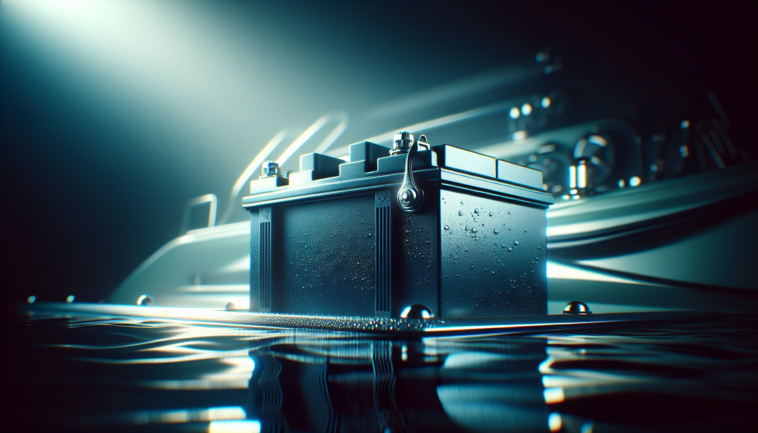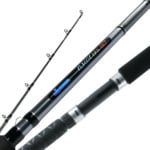Imagine you’re out on the water, enjoying a beautiful day of sailing on your boat. The sun is shining, the breeze is perfect, and everything seems idyllic. But suddenly, you notice a flickering light on your control panel, or worse, your entire electrical system goes dead. Panic sets in as you realize you have no idea how to handle this situation. Don’t worry, we’ve got you covered. In this article, we will guide you through the process of recognizing and handling issues with boat electrical systems, ensuring that you’ll never be caught off guard again.
Understanding Boat Electrical Systems
Boat electrical systems are the lifeline of your vessel, providing power for various components and ensuring a smooth and safe sailing experience. Understanding how these systems work is crucial for any boat owner.
Types of Boat Electrical Systems
There are two main types of boat electrical systems: AC (alternating current) and DC (direct current) systems. AC systems are typically used when the boat is connected to shore power, while DC systems are used when the boat is running on battery power. It’s important to understand the differences between these systems and how they function to troubleshoot any issues effectively.
Basic Components of a Boat Electrical System
A boat electrical system consists of several key components that work together to deliver power and ensure the proper functioning of various devices. These components include batteries, alternators, battery switches, circuit breakers, fuses, wiring, gauges, and various electrical devices such as lights, pumps, and navigation systems. Understanding the purpose and function of each component is essential for proper maintenance and troubleshooting.
Common Issues with Boat Electrical Systems
Boat electrical systems can experience a range of problems that can affect their performance and safety. It’s important to be aware of these common issues and know how to address them promptly.
Dead Batteries
Dead batteries are one of the most common electrical issues on boats. They can be caused by a variety of factors, such as excessive usage, improper charging, or old age. Recognizing the signs of a dead battery, such as dim lights or difficulty starting the engine, is crucial. It’s important to troubleshoot and recharge or replace the battery as needed.
Faulty Wiring
Faulty wiring can lead to a variety of electrical problems on a boat. This can include loose or damaged connections, short circuits, or improper installation. Identifying and repairing faulty wiring is essential to prevent electrical failures, fires, or other safety hazards.
Corroded Connections
Corrosion can occur on electrical connections due to exposure to moisture and saltwater. Corroded connections can cause poor electrical conductivity, leading to system malfunctions. Regular inspection and cleaning of connections can help prevent this issue from occurring.
Malfunctioning Gauges
Malfunctioning gauges can provide inaccurate readings, posing a safety risk. This can include fuel gauges, temperature gauges, or battery voltage gauges. Troubleshooting and replacing faulty gauges is necessary for accurate monitoring of the boat’s systems.
Recognizing Boat Electrical System Problems
recognizing boat electrical system problems is essential for early detection and timely resolution. Understanding the symptoms and using electrical testing equipment can help you identify the root cause of the issue.
Identifying Symptoms
Being aware of the symptoms of electrical issues can help you pinpoint the problem. These symptoms can include flickering lights, blown fuses, malfunctioning devices, abnormal sounds, or even electrical shocks. If you notice any of these symptoms, it’s crucial to take action and investigate the potential issue.
Using Electrical Testing Equipment
Electrical testing equipment, such as multimeters or circuit testers, can provide valuable insights into the functioning of the boat’s electrical systems. These tools can help you measure voltage, continuity, resistance, and other parameters to diagnose and troubleshoot electrical problems effectively.
Handling Boat Electrical System Issues
Dealing with boat electrical system issues requires knowledge and caution to ensure safety and effectiveness. Following the proper steps and procedures is crucial for resolving these problems.
Safety First: Turn off the Power
Before attempting any repairs or troubleshooting, always turn off the power to the boat’s electrical system. This includes shutting off the batteries, disconnecting the shore power, or turning off the main circuit breaker. By doing so, you reduce the risk of electrical shock or further damage.
Troubleshooting Dead Batteries
When dealing with dead batteries, start by checking the battery connections and ensuring they are clean and secure. Test the battery voltage using a multimeter to determine if it needs to be recharged or replaced. If recharging doesn’t resolve the issue, consult a professional to diagnose the problem further.
Repairing Faulty Wiring
Repairing faulty wiring requires careful inspection and identification of any damaged or loose connections. Secure any loose connections and replace any damaged wiring or connectors. It’s essential to follow proper wiring practices and ensure all connections are well-insulated to prevent future issues.
Cleaning and Fixing Corroded Connections
To clean and fix corroded connections, start by disconnecting the affected components and cleaning them with a wire brush or corrosion cleaner. Apply a corrosion inhibitor or dielectric grease to prevent future corrosion. Ensure all connections are securely reattached and regularly inspect and maintain them to avoid future problems.
Replacing Malfunctioning Gauges
Replacing malfunctioning gauges involves identifying the faulty gauge and finding a suitable replacement. Consult the boat’s manual or a professional technician for guidance on specific procedures. Take note of the wiring and connections and ensure they are properly reconnected during the replacement process.
Preventive Maintenance for Boat Electrical Systems
Regular preventive maintenance is key to keeping your boat’s electrical systems in optimal condition and avoiding potential issues. Follow these practices to ensure the longevity and reliability of your boat’s electrical systems.
Regular Inspections
Perform regular inspections of your boat’s electrical system to identify any signs of wear, damage, or corrosion. Check all connections, wiring, components, and devices for proper functioning. Make any necessary repairs or replacements promptly to prevent further damage.
Proper Wire Maintenance
Proper wire maintenance includes using appropriate wire sizes, securing connections tightly, and protecting them from moisture, heat, and vibrations. Regularly inspect wires for any signs of wear or damage and make the necessary repairs or replacements.
Corrosion Prevention
Given the marine environment’s corrosive nature, corrosion prevention is crucial. Use corrosion-resistant materials for connections and components, regularly clean and inspect connections, and apply corrosion inhibitors or dielectric grease as needed.
Battery Care and Maintenance
Maintaining your boat’s batteries properly is essential for their longevity and performance. Follow the manufacturer’s guidelines for charging, storage, and maintenance. Inspect and clean battery terminals regularly and ensure they are securely connected.
Protective Equipment
Always use appropriate protective equipment when working on boat electrical systems. This includes gloves, safety glasses, and insulated tools. By prioritizing safety, you minimize the risk of injuries and accidents while working on your boat’s electrical systems.
When to Seek Professional Help
While many boat electrical system issues can be resolved through DIY efforts, there are occasions when professional help is necessary. Recognizing the signs and choosing a qualified marine electrician are essential in these situations.
Signs it’s Time for a Professional
Certain signs indicate it’s time to call a professional marine electrician. These may include complex electrical problems, extensive wiring repairs, unfamiliarity with electrical systems, or a lack of confidence in DIY troubleshooting. If you’re unable to resolve the issue safely or effectively on your own, it’s best to seek professional help.
Choosing a Qualified Marine Electrician
When selecting a marine electrician, ensure they are qualified, experienced, and have a good reputation in the boating community. Ask for recommendations, check online reviews, and verify their certifications and licenses. A qualified electrician will provide reliable services and ensure your boat’s electrical systems are in optimal condition.
Boat Electrical System Safety Tips
Boat electrical systems can pose safety risks if not handled properly. Follow these safety tips to protect yourself and your boat’s electrical systems.
Educate Yourself on Basic Electrical Safety
Understanding basic electrical safety principles is crucial when working with boat electrical systems. Educate yourself on topics such as electrical shock prevention, proper grounding, and safe handling of electrical devices.
Proper Use of Circuits and Breakers
Learn how to properly use circuits and breakers to prevent overloading and ensure safety. Avoid overloading circuits, and regularly check breakers for proper functioning. If a breaker continues to trip, consult a professional for further inspection.
Protective Gear and Clothing
Always wear appropriate protective gear and clothing when working on boat electrical systems. This includes gloves, safety glasses, and non-conductive footwear. These items protect you from potential hazards and minimize the risk of injuries.
Emergency Preparedness
Be prepared for electrical emergencies by having a well-stocked first aid kit on board. Familiarize yourself with emergency shutdown procedures and have fire extinguishers readily accessible. Regularly review and practice emergency response plans to ensure everyone on board knows what to do in case of an electrical emergency.
Common DIY Boat Electrical System Upgrades
If you’re looking to enhance your boat’s electrical systems, there are several DIY upgrades you can consider.
Installing LED Lighting
LED lighting is a popular choice for boat owners due to its energy efficiency and durability. Upgrading your boat’s lighting system to LED can provide brighter illumination, longer lifespan, and reduced power consumption.
Adding Solar Panels
Solar panels can be a great addition to your boat, providing a renewable source of energy. By harnessing the power of the sun, you can charge your batteries and reduce reliance on shore power or generator usage.
Upgrading Batteries
Upgrading your boat’s batteries can enhance its electrical performance and reliability. Consider investing in high-quality, deep-cycle batteries that are specifically designed for marine applications. These batteries provide longer running time and can withstand the demands of marine electrical systems.
Resources for Boat Electrical System Maintenance
There are various resources available to help you with boat electrical system maintenance.
Online Forums and Communities
Online forums and communities are valuable sources of information and support. Participate in boating forums or join social media groups dedicated to boat electrical systems to learn from experienced boaters and share your own experiences.
Boat Electrical System Manuals and Guides
Consult your boat’s electrical system manuals and guides for specific information on the components, wiring diagrams, troubleshooting tips, and maintenance procedures. These resources provide comprehensive instructions tailored to your boat’s make and model.
Marine Electrician Services
If you’re uncertain or uncomfortable with maintaining or repairing your boat’s electrical systems, consult a reputable marine electrician. These professionals have the expertise and knowledge to diagnose and resolve electrical issues efficiently and safely, providing you with peace of mind.
Conclusion
Understanding and effectively handling boat electrical system issues is vital for every boat owner. By familiarizing yourself with the different types of systems, common issues, troubleshooting techniques, and preventive maintenance practices, you can ensure the safety, performance, and longevity of your boat’s electrical systems. Remember to prioritize safety, seek professional help when needed, and continually educate yourself to navigate the complexities of boat electrical systems confidently.





